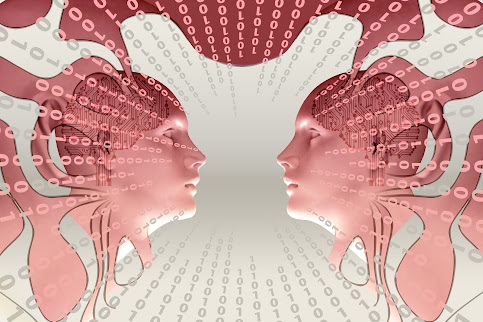Challenges in Global Mental Health Care Policies, Systems and Research
“Over the course of the past decade, there’s been increased willingness to recognize mental health as an essential part of one’s well-being.” Nicole Spector
Challenges in Mental Health Disorder Diagnosis
Mental Healthcare Management Challenges and Opportunities
International Mental Healthcare Challenges
"International mental healthcare faces several challenges that impact access to quality care and the well-being of individuals worldwide. Some of these challenges include:
1.
Stigma: Stigma surrounding mental health issues remains a significant challenge globally. Negative attitudes and misconceptions surrounding mental illness often lead to discrimination, social exclusion, and reluctance to seek help. This stigma can prevent individuals from accessing appropriate care and support.
2.
Limited Resources: Many countries, particularly low- and middle-income nations, face resource constraints when it comes to mental healthcare. There is often a lack of funding, inadequate infrastructure, and a shortage of mental health professionals. Limited resources make it challenging to provide comprehensive services and reach vulnerable populations.
3.
Inequality and Disparities: Mental healthcare inequalities exist between and within countries. Disparities can be observed in terms of access to services, quality of care, and availability of specialized treatments. Marginalized populations, such as those from low-income backgrounds, ethnic minorities, and refugees, are often disproportionately affected by limited access and poorer mental health outcomes.
4.
Integration of Mental Health into Primary Care: Integrating mental health services into primary care settings is crucial for addressing the global mental health burden. However, many healthcare systems still struggle to achieve this integration effectively. Lack of training, awareness, and coordination between mental health and primary care providers hinder the delivery of comprehensive, coordinated care.
5.
Global Burden and Rising Demand: Mental health disorders contribute significantly to the global burden of disease. The demand for mental health services is increasing, driven by factors such as population growth, urbanization, and the impact of societal changes and stressors. Meeting this rising demand is a substantial challenge for healthcare systems worldwide.
6. E
mergency and Crisis Response: Adequate emergency and crisis mental healthcare services are essential to support individuals in acute distress. However, many regions lack well-developed crisis response systems, including crisis helplines, emergency psychiatric facilities, and community-based crisis interventions. This gap poses challenges in providing timely and effective care during emergencies.
7.
Cultural and Linguistic Competence: Mental healthcare must be culturally sensitive and linguistically appropriate to meet the needs of diverse populations. Language barriers, cultural differences, and varying beliefs about mental health can hinder effective communication, accurate diagnosis, and appropriate treatment. Addressing these challenges requires culturally competent care and the involvement of trained interpreters when necessary.
8.
Mental Health in Conflict and Post-Conflict Settings: Populations affected by conflicts, disasters, and humanitarian crises are particularly vulnerable to mental health problems. The provision of mental healthcare in these settings is challenging due to disruptions in healthcare systems, infrastructure damage, and the need to address trauma-related issues. Rebuilding mental health services and ensuring psychosocial support is crucial in these contexts.
To overcome these challenges, a comprehensive approach is needed, focusing on destigmatization, increased investment in mental health infrastructure, workforce development, community-based care, and integrating mental health into primary healthcare. Collaboration among governments, healthcare providers, non-governmental organizations, and international agencies is essential to address these challenges effectively and improve mental healthcare worldwide." (Source: ChatGPT 2023)
Challenges and Barriers in Mental Healthcare Systems and their Impact on the Family: A Systematic Integrative Review Wiley Online Library
Challenges and Lessons Learned in Mental Health Research among Refugees: A Community-Based Study in Turkey BMC Public Health
Challenges and Opportunities in Global Mental Health: a Research-to-Practice Perspective ResearhGate
Challenges and Opportunities to Meet the Mental Health Needs of Underserved and Disenfranchised Populations in the United States Focus Psychiatry Online
Challenges and Priorities for global mental health in the Sustainable Development Goals (SDG) era The Academy of Medical Sciences
Challenges associated with Mental Health Management: Barriers and Consequences Science Direct
Challenges in Diagnosing Psychiatric Problems in Very Young Children Child Mind Institute
Challenges faced by Mental Health Nurses working with people living with Mental Illness in Eswatini: A Qualitative Study Science Direct
Different Mental Disorders and Their Challenges Happy Place
Global Mental Health Needs, Services, Barriers, and Challenges JSTOR
International and National Policy Challenges in Mental Health NIH
Integrating Mental Health Services into Primary Health Care – A Review of Challenges and Outcomes in the International Setting Cambridge University Press
Issues and Challenges of Mental Health in Malaysia HR Mars
Lack of Adolescents’ Mental Health Care Is a Global Challenge Jama Network
Mental Health Research in India: New Challenges and the Way Forward Sage Journals
Mental Health System Costs, Resources and Constraints in South Africa: A National Survey Oxford Academic
Mental illness is a Global Problem: We Need a Global Response Health Poverty ActionOperational challenges in the pre-intervention phase of a mental health trial in rural India: reflections from SMART Mental Health BMC
Opportunities and Challenges of Global Mental Health Springer
Policy Development and Challenges of Global Mental Health: A Systematic Review of published Studies of National-level Mental Health Policies American Psychological Association
Review and Analysis of mental health reforms in several countries: Implementation, comparison and future challenges Peertechz
Sharing solutions, facing the Challenges of Global Mental Health Global Health Institute
Understanding India’s response to mental health care: a systematic review of the literature and overview of the National Mental Health Programme JoGHNP
Why we should invest in Mental Health in Africa World Economic Forum
Global Mental Health Challenges and Priorities - Video










